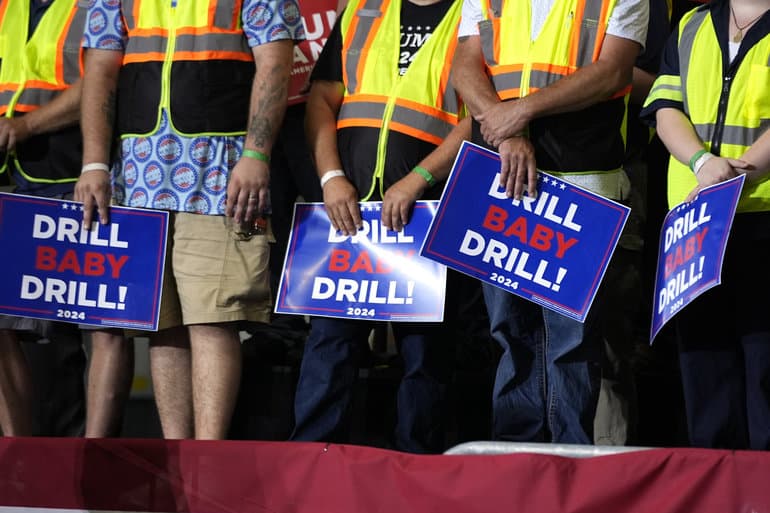
The United States is the world's second-largest emitter of CO2. Only surpassed by China. That's why the United States' direction in this area is crucial for the global fight against climate change.
President Donald Trump has made no secret of what he thinks. He doesn't give much thought to the talk about climate change.
Trump has pulled the United States out of the global climate agreement, the Paris Agreement from 2015, and has ramped up US fossil fuel extraction since he became president in January. Trump also pulled the United States out of the Paris Agreement when he was first president, but his successor, Democrat Joe Biden, rejoined the United States in the climate fight.
However, the United States' announcement of the Paris Agreement will not come into effect until next year. That's why the United States can theoretically participate in the upcoming UN climate summit, COP30, in November in Belém, Brazil. Governments from almost the entire world will gather here to set the direction for the global fight against climate change. But whether the United States, which has had one of the heaviest votes at previous meetings, will participate this time is currently unknown.
Great influence regardless of attendance
Regardless of whether the United States is represented or not, it will have a great influence, according to experts Reuters has spoken to. Jean Su from the NGO Center for Biological Diversity hopes the United States will stay away.
- It is not productive to have the Trump administration there if we are serious about tackling fossil fuels.
- The United States has the ability to delay every decision made at the COP, Su tells Reuters.
Last year's summit in Baku, Azerbaijan, resulted in, among other things, a new target for climate finance, where the richest countries must pay $300 billion - 1900 billion kroner - per year by 2035 in climate aid to developing countries. A target that was widely criticized as too low.
COP29 in Baku took place shortly after Trump won the presidential election. Even though Trump was not yet president, it still influenced the negotiations, participants told Reuters.
According to Reuters, Trump's promotion of the fossil fuel industry is expected to influence the meeting in Belém.
May affect other major emitters
The US direction could prompt other major emitters such as China and India to also scale back their efforts. So could a possible absence of the US from the summit.
A possible foretaste of the US approach to COP30 is that the US has refused to sign a statement from the World Bank, which was intended to reaffirm its commitment to combating climate change. Several conservative groups are calling on the US not to attend the meeting.
- By not sending a delegation to COP30, it sends a message that the US will no longer be a victim of the global climate scam.
- It sends a message to the American people that the Trump administration puts America first, says a letter from conservative groups to US Energy Secretary Chris Wright and Interior Secretary Doug Burgum.
Steve Milloy represents the Energy & Environment Legal Institute, which is one of the groups behind the letter.
He does not believe that it makes any sense for the US to participate in COP30. The US can still ignore a possible agreement
- There is no way the UN can land an agreement that is binding on the US, he says.
Energy Secretary Wright has previously said that he would not mind participating in COP30 because it would be a platform to talk about US positions and plans.
Jean Su believes that the Trump administration could be a "deadly" player in the negotiations.
- They play an even more fatalistic role in the negotiations if they participate than if they do not.
- The consequences could be very serious if the administration decides to leave this year, says Jean Su.
/ritzau/Reuters
Text, graphics, images, sound, and other content on this website are protected under copyright law. DK Medier reserves all rights to the content, including the right to exploit the content for the purpose of text and data mining, cf. Section 11b of the Copyright Act and Article 4 of the DSM Directive.
Customers with IP agreements/major customer agreements may only share Danish Offshore Industry articles internally for the purpose of handling specific cases. Sharing in connection with specific cases refers to journaling, archiving, or similar uses.
Customers with a personal subscription/login may not share Danish Offshore Industry articles with individuals who do not themselves have a personal subscription to Danish Offshore Industry.
Any deviation from the above requires written consent from DK Medier.
























